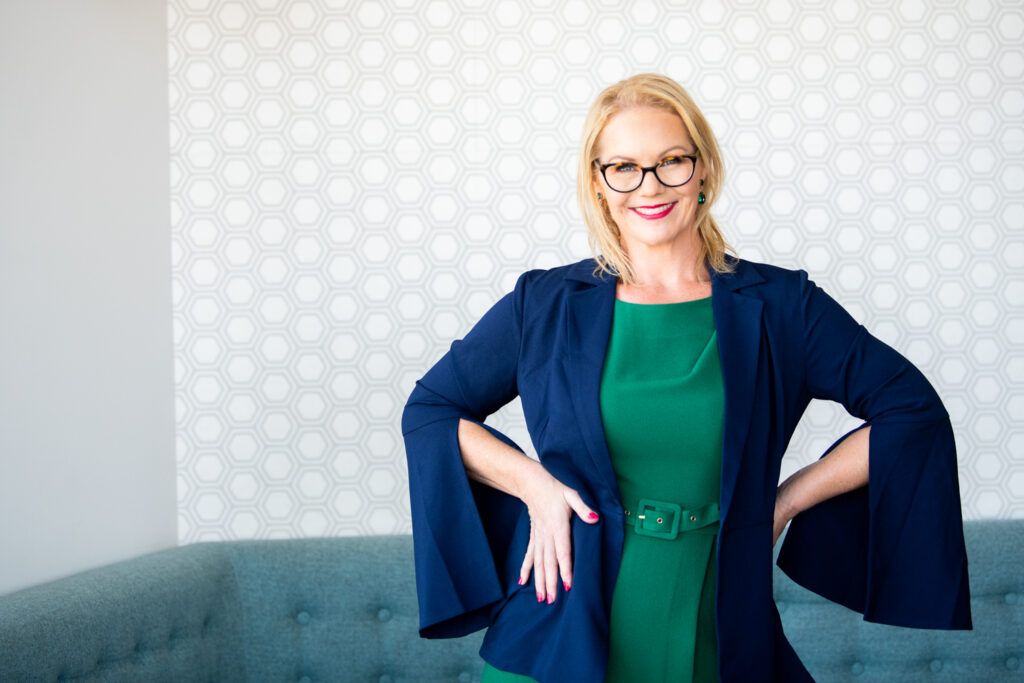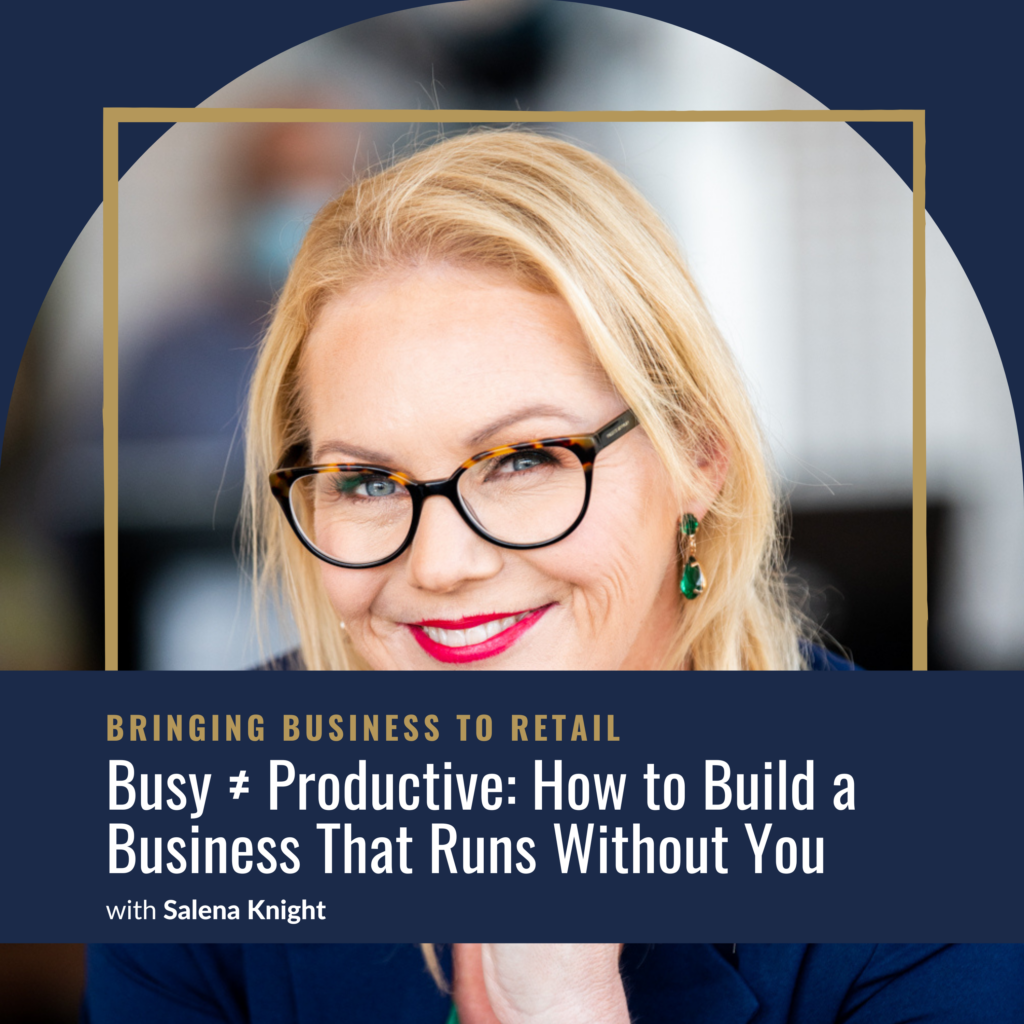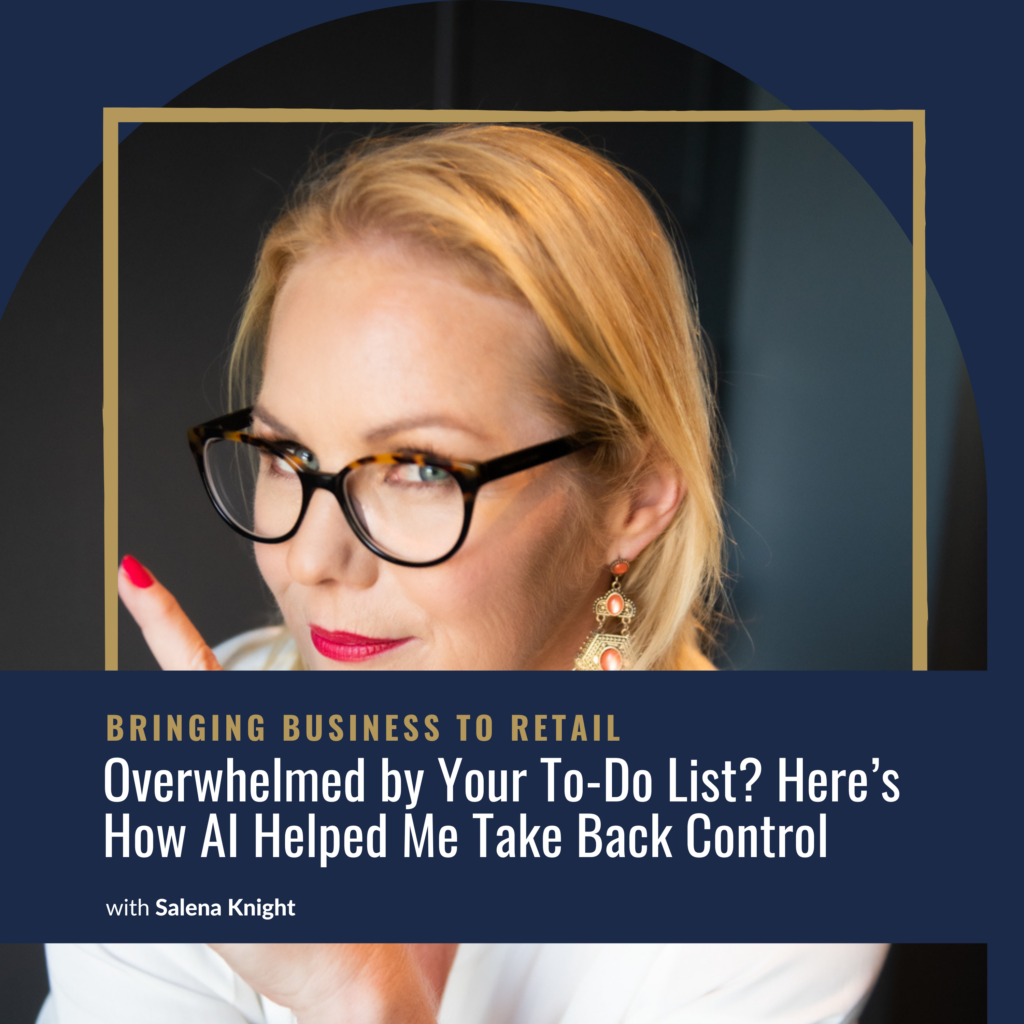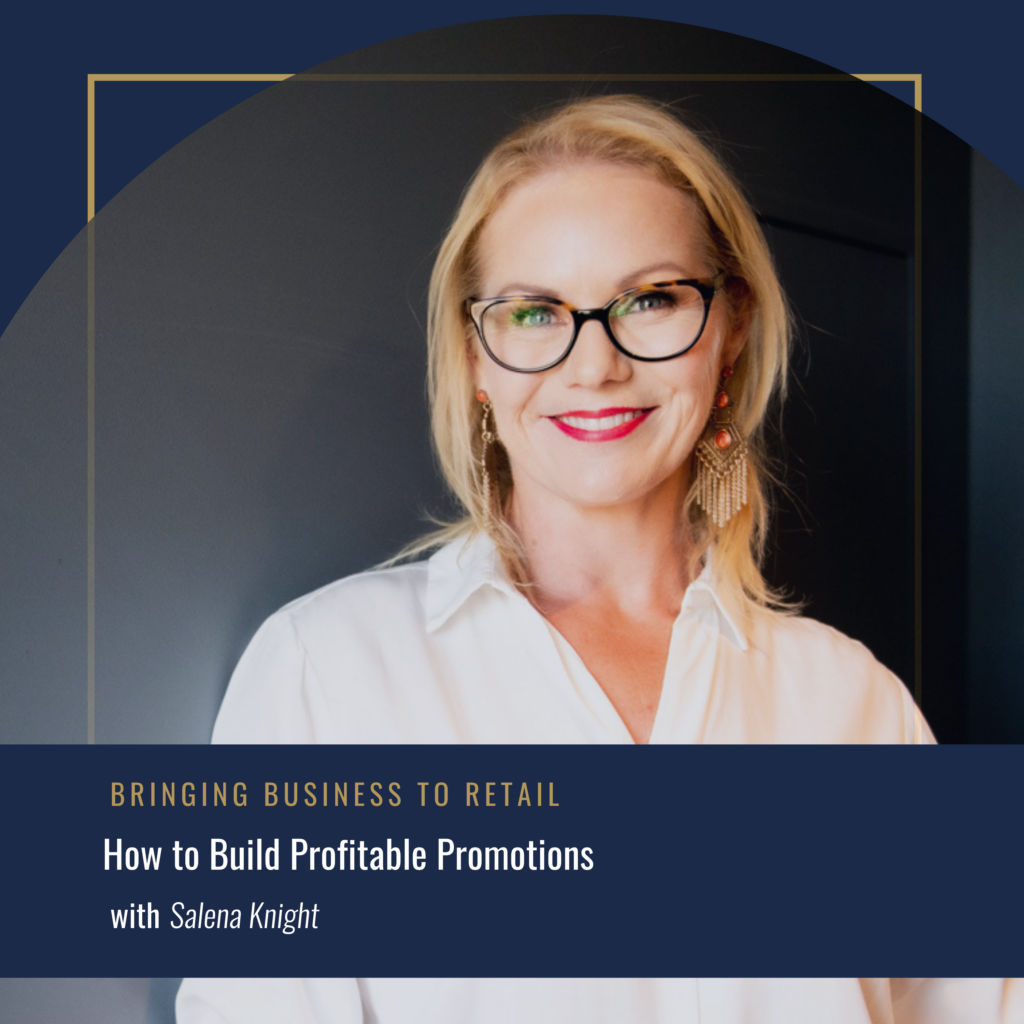
SHOW NOTES
In this episode, I’m bringing you inside a real conversation we had this week inside the Scale Your Store Accelerator—one I have every single year with retailers who are dreading Black Friday and wondering how to show up without discounting their brand to death.
If that’s you, I want you to know: your customers want to buy from you. They’re already preparing to spend. The question isn’t whether they’ll spend—it’s where they’ll spend. And if you’re not showing up with a plan, you’re likely leaving money on the table.
I’m diving deep into holiday buying psychology, sharing stories and stats that will reshape how you think about Q4, and showing you how to capture holiday demand without losing your margins.
Whether you run a premium brand or you’re just tired of throwing promotional spaghetti at the wall, this episode will help you take control of your holiday sales—strategically, confidently, and on your terms.
WHAT WE’LL COVER
- Why not discounting doesn’t mean disappearing
- The psychology of holiday spending (and why emotion beats logic)
- What your customers are really looking for during the holidays
- A real story of a jewelry brand that got it wrong—and what you can learn from it
- How urgency, emotion, and deadlines drive sales
- The difference between brands that react and brands that win
- Why now is the time to plan—not panic
WANT TO GO DEEPER?
Join me for the Double My Holiday Sales Bootcamp
We kick off Monday, and over four live sessions, I’ll walk you through exactly how to create sales campaigns that work—without discounts and without overwhelm.
Head to LINK HERE TO THE BOOTHCAMP to claim your spot.
LISTEN NOW on The Bringing Business To Retail Podcast
I wanted to let you in on a conversation that we had inside of the scale your store accelerator this week. Now, if you're new to the podcast in the accelerator, we go through each of the five pillars of retail success, money, customers, sales, marketing, and impact to transform your throw spaghetti at the wall, marketing into strategic sales driven systems.
So in this conversation, and honestly, this is one that I have multiple times every single year. In fact, if you listen to the podcast, you've heard me say this before. But I figured that if it's important to our accelerator retailers, it's probably important to you as well. So this retailer, I won't wait.
Name names. She has, um, she's very smart, amazing products. Let's call her Emma. Emma told me that she was dreading Black Friday because she hates having to slash prices to compete. And this is not something new. Like I appreciate when you have a premium brand. The idea of discounting. Seems like an antithesis to your whole brand values.
And it's interesting because when she said that, I was like, oh, hate like you hate having to do something. I mean, who said you had to do anything? Welcome to the Bringing Business to Retail podcast. We talk all about strategies to grow your retail or e-commerce business, and of course to make more money.
So here's Emma. It's late August and she's stressed about discounting for the Black Friday season. I'm a little bit more of a silver lining kind of person because I see Black Friday. In fact, I see the whole holiday season as an opportunity because it is literally when your customers are walking around with their wallets open, looking for places to spend money.
So the question isn't whether they're going to buy. It's whether they're going to buy from you and they're gonna buy your products from your store. So today we're talking about holiday spending psychology and why customers are already prepping their minds and their wallets for buying mode. Why they actually want you to give them reasons to spend with your store, and of course, how you can capture that demand without racing to the bottom, like the big chain stores.
I know that's a lot, right? But here is the kicker when you understand psychology. You realize that customers aren't doing you a favor by buying during the holidays. In fact, you are doing them a favor by making it easy. So let's get into how all of this works. Alright, I want to start with some data. I got asked to do an article for Afterpay the other day, so I was digging through this data and.
There were some stats there that I kind of forgotten after Black Friday Each year I always wait to see what the stats look like, but I completely forgotten about what last year looked like because I am focused on this year. And so if you listen to the podcast, you will know that I did a series of podcasts last year talking about what was going to happen during Black Friday, and the reason for that was times had changed already.
Economic. Circumstances were changing. The interest rates had gone up multiple times. People were tightening their wallets, and so I will put my hand up and say, honestly, I thought that Black Friday spending last year was going to be down. I didn't think people were going to be eager to spend. As I said, the interest rates had already risen multiple times all around the world.
Big box retailers started way earlier than I'd ever seen. I mean, I was seeing Black Friday deals in October, and I wasn't really sure whether customers were going to curb their spending or whether they were going to take the opportunity to stock up, because not only in the lead up to Black Friday where the offers earlier, but everything was already on sale.
But boy was I wrong because the data shows us that in Australia. The USA and the UK. Black Friday spending was up 10% year on year. Now I think that's a really good indicator of what we're going to see this year. Last year, the average American household spent over $1,800 during the holiday season. That's $1,800 per family.
That's a lot of money, my friends, but here's what's fascinating. They didn't just think, oh, I'll go out and buy a few gifts. That money is already allocated, whether it is already in the bank or even if it's subconsciously allocated, it's sitting in check accounts. It's sitting in the back of their mind.
It's been budgeted for and it's burning a a hole in people's pockets as early as October. Now, the National Retailer Federation found that over half of consumers already had their shopping lists finalized in October. And 75% of customers were already shopping for the holidays in November. So let's just think about that for a second.
Three quarters of your customers are already in shopping mode before the Halloween decorations have even come down. Now, I am always fascinated in why humans do the things that they do. Have you ever wondered why people seem to spend more when they're on holidays or whether it is the holidays? I know when I go away on holidays, it's kind of like.
Money spent on the holidays doesn't count. And now maybe you're not a pop psychologist like me, but many, many years ago, I wanted to understand why was this the case? Why was it that at Christmas time or in the lead up to Christmas, people just didn't care about what prices were? And so I started to read books on marketing psychology, and I was trying to understand it.
So here's the thing. You don't have to read the books, I'll just tell you it's not because they feel generous. I mean, yes, that's part of it. It's because holiday spending operates on a completely different psychological principle. Than regular purchasing. The thing is, during the holidays, people aren't just buying products.
I mean, at all times. People aren't just buying products, they're buying feelings. But during the holidays that rises to the top, they're buying the perfect moment. When their kid opens that gift they're buying the satisfaction of finding that unique, hard to buy for a person, the perfect gift They're buying the relief of being able to cross names off their list.
And when you are buying feelings, my friends. Just like a Hallmark movie where the dad runs into the toy shop to buy the last do on the shelf for his daughter and gets pipped at the post by another mother, and then he offers her hundreds of dollars for it, price becomes secondary and that is an opportunity for all of you just waiting to be snapped up.
Now let me tell you about something that happened to a jewelry brand that I know last year. Absolutely beautiful jewelry company. I think handcrafted unique pieces. Definitely premium pricing. Well, the owner decided that the brand was not going to participate in Black Friday, I think. I think her words were, we are too good for Black Friday, Friday promotions.
You know, I shook my head, but you know, I can't make people do anything. So she was going to maintain her brand integrity and just stay outta the discount game entirely. And you know me, I totally respect not discounting, I don't disrespect discounting. I totally respect not discounting. I'm all for it.
There are ways that you can still leverage Black Friday even if you are not participating. In fact, I did a fantastic podcast. I'll link to it in the show notes with Toby from Shopify on this exact same subject, how they use Black Friday to leverage the brand, but without discounting. But this brand didn't do that.
They just went radio silence. You know what happened? Her customers literally emailed her to say that they were disappointed, not because they couldn't afford to pay full price. Many of them had actually been saving specifically to treat themselves or to buy gifts from her brand during the holiday sales.
They felt left out and they felt like she didn't want their business. And here's what they also did. They spent their money elsewhere. Because here's what she didn't realize, that customers aren't just expecting holiday promotions. They're actually planning their shopping around them. And so when your favorite brands don't participate, it feels a little bit like rejection.
I know, I know that probably sounds dramatic, but you think about your own shopping behavior. Do you kind of expect that your go-to brands are going to give you something special during the holidays? You dunno what it is, but you're expecting something. As a consumer, you know, all of your brands that you love will do something to get you to buy during the holiday, whether it's insider access or an exclusive offer, and maybe it is discounts.
But the psychology here is fascinating because during the holidays, customers aren't just in transaction mode, they're in relationship mode, and that's what this jewelry store didn't utilize. Your customers want to feel connected to the brands that they love, and when you just don't show up to the party, well, they're gonna find someone who does.
But, and this is crucial, showing up does not mean you have to slash your prices in half and hope for the best. So let me share with you something that has completely changed how I think about holiday retail psychology when people are buying gifts. Their brains. Literally like this is not cell made up stuff.
This is science. This is neurological Science shows us that our brains work differently than when we are buying for ourselves. There's a concept in behavioral psychology called gift giving anxiety. I know it sounds very negative, but actually it's not. So the beautiful part for you is that this anxiety makes people more willing to spend.
When someone is buying a gift, they're not just evaluating the product, they're evaluating how that product reflects on them as a gift giver. Will this make them look thoughtful? Will this make them look generous? Will they look like they actually get the recipient? I mean, just yesterday I was shopping for my daughter.
She's impossible to buy for. She's coming back from Japan. She's been away for eight months now. 17 years old. Very, very particular taste. She's the kind of thing where I'll say, oh, what about this? And she'll just roll her eyes and go, mama. But as I walk past the store yesterday, I was in the mall, in the local mall doing content shoot, actually, and I walk past this hoodie.
And it was a cinnamon roll hoodie. I'm saying that wrong. I know I'm saying that wrong. If your kid is a Hello Kitty fan, you'll know that Cinema roll, there's no n in the middle. Cinema Roll is a little character from the San Rio brand. I think it's a dog. I'm not a hundred percent sure it's white. It's got big blue ears.
Um, part of the Hello Kitty family. Anyway, my daughter loves Cinnamon Roll and I saw this hoodie. I know she's coming back. It's somewhere in Japan. She's gonna come back. She's gonna tell me she has no clothes and it's her birthday a couple of days before she gets back. So anyway, I bought the hoodie. Was it more than I would normally spend on a hoodie?
Absolutely. Did I care? Not even a little bit because I wasn't buying the hoodie. I was buying that moment when she was gonna come home and she would open it and she would think, oh, my mom really gets me. Like my mom made a good choice. I was buying my reputation as a good gift giver and a cool mom. Now the thing is gift giving.
Flips normal price sensitivity, completely upside down, just like me and the hoodie. I didn't care what it costs. I just wanted to, I wanted her to feel good. I wanted her to not be worried that, you know, she didn't have anything when she came home and it would feel safe and it would feel familiar and all those kinds of things.
And of course it was toasting comfortable. When you're buying for yourself, if you're anything like me, you agonize over whether something is worth the money. Whether you should be spending money on this. Is this something that I'm going to keep, or all these sorts of things? I mean, sometimes it can come down to, you know, just buying a juice or a smoothie.
It's like, you know, should I be spending my money on this? But when you are buying a gift, you are not worried about whether it's special enough. And this is why premium brands can absolutely clean up during the holidays without discounting. You just have to position your products as the solution to that gift giving anxiety, psychological behavior.
Not the solution to budget constraints. Let's talk about something that as retailers, we often take for granted because it just happens and unless you stop to step back and think about it, you probably haven't even realized because it does, it just happens. Holiday spending isn't just emotional. It's urgent.
And you know, I love me some urgency when it comes to creating promotions because urgency changes everything during a regular shopping season. Customers can take their time, they can get on their phones, they can comparison shop, they can wait for sales. I mean, big box stores are on sale every week. So, you know, even there are things that you know will come on sale.
You know that every six weeks or every eight weeks, it's, it's gonna come on sale. You have time to think it over. But during the holidays, there is a deadline, my friends. Christmas doesn't move because you need more time to decide. Black Friday deals are time bound. You know it's Cyber Weekend or just Black Friday.
Bestsellers. Well, they sell out and limited editions are limited, and this urgency love me some urgency when it comes to marketing. Is what economists call deadline pressure purchasing all these fancy words. Basically, it's just gonna push you to spend. It's the same reason that people will pay premium prices for last minute flights or hotel rooms because when time is a factor, convenience and availability become way more valuable than the best possible price.
Now, I know that I learned this lesson myself the hard way in my own retail business. December. I'm gonna say it was like December 15, like 10 days before Christmas, a customer called my store frantically looking for a specific item for her daughter. Did we have it? Yes. Was it full price while other stores have it on sale?
Yes. I mean, I hadn't done any deals with my suppliers to bring this cost down and big box stores sold this exact same product, but they didn't have any. It's kind of like the Hallmark movie, right? Did she care that it was full price? Not even slightly. She literally said, can you hold it for me? I'll be there in 20 minutes.
So here's the kicker. She actually became one of our best customers because we saved her holiday season. We saved her Christmas. The price was irrelevant and availability was everything. There's a saying along the lines of, if you sell the worst hot dogs in, uh, it's not a saying. It's an example. If you sell the worst hot dogs in the world and nobody buys them.
But if you take those same hot dogs and you stand outside of a football stadium at 11:00 PM and there are no other food stores around, you're still gonna sell them, right? Because there's urgency, there's customers, there's availability, and you have something that they want, and they don't care what the price is.
So this is why smart retailers don't just focus on having the lowest prices during the holidays. They focus on being the reliable choice when customers are under pressure. So let me address the elephant in the room. Competition. I hear this all the time and it's, it's pretty much why Emma brought up the conversation about discounting and further onto that conversation.
She said, you know, well, I don't wanna do 30, 40, 50% off, and that's what the big chain stores do. So how like if I can't compete, I'm just not going to compete. Here's what I say. You know what? You are asking the wrong question. The right question is, how can I give customers what they actually want? How can I give my customers what they actually want?
And I'm gonna say there's a really good chance that a lot of you listening, your customers are not after 50% discount. 'cause here's what customers actually want during the holidays. They want to feel smart about their purchases. They want to support local. They want convenience. They wanna feel special.
And yes, they want value, but value doesn't always mean the lowest price. So let's dive into something that is really fascinating and it's about how people make purchasing decisions during holidays versus the rest of the year. Now, we talked about this just a little bit. I touched on this just a little bit before.
Most of the year customers go through a logical process. So if you're going to, you know, buy a gift or buy yourself something, I've got a need, I want a new sofa, you're going to research your options. You're going to compare prices. So you find the sofa or you find an equivalent sofa, and then you look around to see if anybody else has that sofa cheaper.
Maybe you're like, oh, it's a little bit more expensive. I'll just wait for a sale. And then you might go to purchase. And so there are distinct steps that people go through. They have a need or a want. They do some research. They look at pricing, they do comparisons. They take time to think about it. It's methodical, it's rational, and actually it takes time.
Most people don't just walk into a a homeware store off the cuff and just buy a new sofa right? During the holidays, that whole process gets compressed. And Emotionalized. So you think about the fact that your sofa, someone spills a massive glass of red wine on your sofa, and it's a few days before Christmas and you've got all the family coming over.
The choice that you make then is very, very different to the choice that you might make just because you are upgrading. So during the holiday, that whole process gets compressed and it gets emotionalized. So instead of thinking. I need new jeans. It's, I wanna find something amazing that I'm gonna look fantastic in on Christmas Day.
That whole process gets compressed and emotionalized. And so you're thinking about my daughter, instead of thinking, well, she needs new jeans, I'm thinking, well, I wanna find something amazing for her that shows her how much I love her and how much I think about her. So instead of comparing prices, it's.
Okay, this feels perfect. I'm gonna take it. That's holiday psychology. Shopping in action. The emotional decision comes first, and then the rational brain kicks in to justify it, which is the complete opposite to how we normally shop. And this is why storytelling becomes so powerful during the holidays when you can help customers picture the moment, the feeling, the reaction, you're speaking directly to that emotional decision making center.
You're speaking to the heart, not the head. So let's pause here for a moment. I want you to think about your last year's holiday season and be honest with yourself. Did you scramble at the last minute? Did you throw together some kind of Black Friday post and post it once, maybe sent out an email and you hoped for the best you crossed your fingers?
Did you run multiple promotions throughout the entire holiday season? Or did you find yourself just reacting to what everyone else was doing instead of having your own strategic plan? Maybe Black Friday came around and you threw up a post. Maybe you realized that you had all this holiday inventory and time was ticking, and so you threw up a sale.
So just like what I said to Emma, what I'm seeing happen right now is that the retailers who are already starting to stress about the holidays, but they're not actually planning for them, they're just worrying. And worrying without planning is just wasted energy. Your customers are already in spending mode.
It is the end of August. I know that I said that they got their shopping list together in October, but trust me when I say, and you are probably doing this too, oh, I'm gonna have to start putting some money aside. Oh, if a deal comes out, I'm gonna grab that for the kids for Christmas. I'm gonna put that on layaway.
All those sorts of things are happening in the backs of our brains. So your customers are already spending. That for the holiday season inside of their head, if they're not already spending with their wallets, they've budgeted for it, they're excited about it, and they're looking for the retailers that stick offers in front of them to spend their money on.
So the question isn't whether they're going to spend money. The question is whether you are going to be ready for them to spend money with you. Have you already chosen the products that you're going to stock? Have you mapped out the promotions that you're going to run? And that is not just Black Friday, that is right through the holiday season.
Have you put together a marketing plan so that you're not just scrambling at the last minute and you know, throwing up an offer for one day just to try and get sales? Let's take desperation off the calendar. So you have to think about, are you gonna be the business that has a clear plan? Who knows exactly what they're offering and when and who makes holiday shopping feel seamless?
Because you can't do that if you're scrambling around at the last minute. If you're scrambling around in November, wondering why everybody else seems to be able to push promotions out with, and you are just trying to figure out what you're doing for Black Friday, it's not gonna end well for you, but it is gonna end well for them.
'cause here's the thing, the retailers who seem to do it effortlessly. They didn't just get lucky. They planned and they started early and they made decisions in, in advance instead of reacting under a pressure. And that preparation shows, it shows in their bank accounts. So here's my challenge for you.
What if this year is different? What if instead of reacting and scrambling you approach the holidays with intention and strategy? I know, I know that you're busy. You've got a million things on your plate already, and the idea of holiday planning on top of all of that probably feels overwhelming, but here's what I know to be true.
Planning actually reduces your workload when you know what you're doing, when you know when you're doing it, and when you need to be doing it by. You stop spinning your wheels and you stop second guessing every decision, and you stop procrast working, spending all time doing busy work rather than the stuff that's going to make you money, you stop wasting time on things that don't matter.
The retailers who make more money during the holidays, I don't know that they're working harder than you in Q4, but they're working smarter. They've made big decisions in advance so that they can focus on execution rather than strategy. They've already decided what promotions they're running and when they've already mapped out their inventory buys, they've already mapped out their email campaigns and their social media content.
Maybe they haven't written it yet, but they know what they're promoting while everyone else is figuring out as it goes. These retailers, they just follow their plan and that's why they win. We can't complain if they're doing the work and we're not. So as we wrap up today, I want to paint you a picture of two very different holiday seasons.
Picture A, it's November 25th, knowing that Black Friday is the 20, I think it's gonna be the 27th this year. So it's a couple of days before Black Friday. You're stressed because you've realized that you should probably do something for Black Friday, but you're not sure what. You start scrolling on social media to see what all your competitors are doing, and you're trying to come up with something last minute.
You wonder if you have enough inventory, but it's probably too late to order anymore anyway. You're feeling behind, you're feeling reactive, and honestly, a little bit jealous of the fact that these other businesses seem to have their holiday strategy all dialed in. I mean, heck, every time you scroll your feed, there's another offer that's picture A, picture B.
It's November 25th. And you are excited because your Black Friday holiday campaign launches tomorrow and you have been building anticipation for weeks. Your inventory is exactly where it needs to be because you planned your orders months ago. Your email sequencer already written, already scheduled, your social content already ready to go.
You are not scrambling. You are executing a plan that you created when you had time to think strategically. Which picture do you want to be your reality? 'cause here's what I know to be true. The difference between picture A and picture B isn't luck or a bigger team or having more money. It's planning and it's making the decision to approach the holiday strategically instead of reactively.
The holiday opportunity is massive. $10.8 billion was spent in the US alone on Black Friday last year. There is money out there, my friends. Customers are ready to buy. The only question is whether you are going to be there for them to give it to you, and I'd love to help you do exactly that. If you are ready to stop throwing promotional spaghetti at the wall and start designing holiday campaigns that actually work, I have something perfect for you.
I am hosting the double my Holiday sales bootcamp. For live trainings, yes, live where I am going to show you how to create campaigns that drive real results. You're going to go from guessing and hoping your next promotion might work to confidently knowing exactly which type of campaign to deploy for any situation.
We're diving deep into the psychology behind what makes customers stop scrolling and start spending. I'll show you three sneaky little mistakes that are killing your promotions behind the scenes and costing you sales and money, and they're not what you think. Then I am walking you through my simple four step formula for creating irresistible offers.
You'll learn exactly what words make people think. I need that now, and here's my credit card. We will wrap it all up with a live masterclass on how to maximize sales during the peak season and turn everything into an actual profit generating system. This bootcamp is designed to take you from not knowing what to promote, to having a clear roadmap that transforms this holiday season from survival mode into your biggest revenue breakthrough.
'cause here's the thing, your customers are already in buying mode. They want to give you money, and this bootcamp shows you exactly how to let them doors open Monday and you can claim your spot at double my holiday sales.com. The holiday season is massive. Customers are ready to buy. The money is there.
The only question is whether you are going to be ready for it. Join me in the double My Holiday Sales bootcamp, and let's give your promotions a kickstart. Double my sales.com to get your spot. I hope to see you there. That's all I've got for today's episode of the Bringing Business to Retail podcast.
I'm telling you that this year can be different, but only if you make it d. All righty. Go make your plan. Thank you so much for listening. I'll see you on the next episode. So that's a wrap. I'd love to hear what insight you've gotten from this episode and how you're going to put it into action. If you're a social kind of person, follow me at the Selena Knight and make sure to leave a comment and let me know.
And if this episode. Made you think a little bit differently or gave you some inspiration, or perhaps gave you the kick that you needed to take action, then please take a couple of minutes to leave me a review on your platform of choice. Because the more reviews the show gets, the more independent retail and e-commerce stores just like yours that we can help to scale.
And when that happens, it's a win for you, a win for your community, and a win for your customers. I'll see you on the next episode.
Share this episode
Watch The Video











